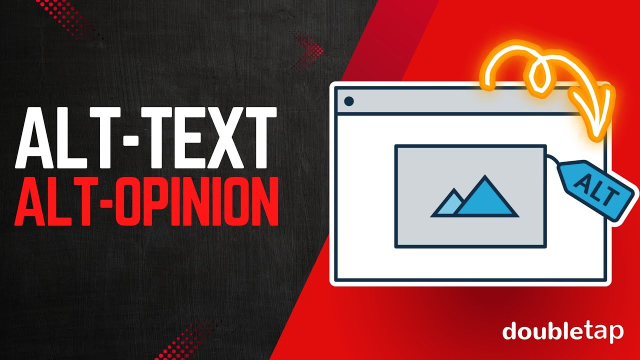From the double tap team. Maybe we shouldn’t advocate for alt text youtube.com/watch?v=CHCK43D0jJ… #Blind #AltText #Accessibility #A11y #AIHype #AI

An Alt-Opinion On Alt-Text.
#alttext #ai #accessibility #websites #socialmedia https://youtu.be/CHCK43D0jJ0An Alt-Opinon On Alt-Text. In this conversation, Steven Scott and Shaun Preece...YouTube
This entry was edited (1 year ago)
Charlie Merry
in reply to Robert Kingett backup • • •Robert Kingett backup
in reply to Charlie Merry • • •Charlie Merry
in reply to Robert Kingett backup • • •Robert Kingett backup
in reply to Charlie Merry • • •Charlie Merry
in reply to Robert Kingett backup • • •Robert Kingett backup
in reply to Charlie Merry • • •Your brain does not process information and it is not a computer | Aeon Essays
Robert Epstein (Aeon Magazine)Charlie Merry
in reply to Robert Kingett backup • • •Kaveinthran
in reply to Charlie Merry • • •Kaveinthran
in reply to Kaveinthran • • •Kaveinthran
in reply to Kaveinthran • • •I follow the AI spaces both from the developer and also from the Academic route, and I feel we need to have more nuanced, grey-hat argument on the potential of AI.
Kaveinthran
in reply to Kaveinthran • • •the vision language model are trained generatively to be good at multiple image evaluation task, describing it is only one of them. By listening to the talk description to me podcast, I learnt how much of an expertese goes into describing a scene well, I don't think so a vision model deployed by big companies want to train a model that can do only that work best.
Kaveinthran
in reply to Kaveinthran • • •this is to let the model learn many facet of one image, that may come from phone camera, or poor lighting etc.
we also need and eval system that is specific to AltText making or for the task of describing image to the Blind people.
Kaveinthran
in reply to Kaveinthran • • •LIke it or not, at the moment, Vision language model, is just average in describing images, it is worst in describing bad images. The overrepresentation of filler words, descriptives etc, makes the technology overhyped. Until we have a blind-focused AI Eval on image description, we are only at step 1 of the development process.
Kaveinthran
in reply to Kaveinthran • • •like, giving AI a personality? I don't think so we need personality, we need our work to be done! We need more autonomy to steer the system to describemore granularly,, sometimes very short, sometimes longer but meaningful.
The personality aspect, while sounds like a system prompt, it just add lots of unrequired aspect to it. I guess we do not need a chat bot to begin with!
Kaveinthran
in reply to Kaveinthran • • •Charlie Merry
in reply to Kaveinthran • • •Kaveinthran
in reply to Charlie Merry • • •we first need a constitution-like principles to ground this vision AI
that is by itself is complicated. We need AI build from ground up that knows how to describe an image to a blind person just like the expert audio and image describer.
Kaveinthran
in reply to Kaveinthran • • •the AI principles or constitutions are there to guide the fine tuning process, like be helpful, be brief, be concise, but this is just a wattered down example.
to create a constitution, we need to answer questions like, what does a good descriptions entailed? how to describe dressings? how to describe humans?
Kaveinthran
in reply to Kaveinthran • • •see the compoication?
we as humans, do all this in magical second, and the copious data that we have now do not account for even little complexity!
the AI system that we have now is too general, if we need a true describer, I feel we need to work for it as community!
Kaveinthran
in reply to Kaveinthran • • •Charlie Merry
in reply to Kaveinthran • • •